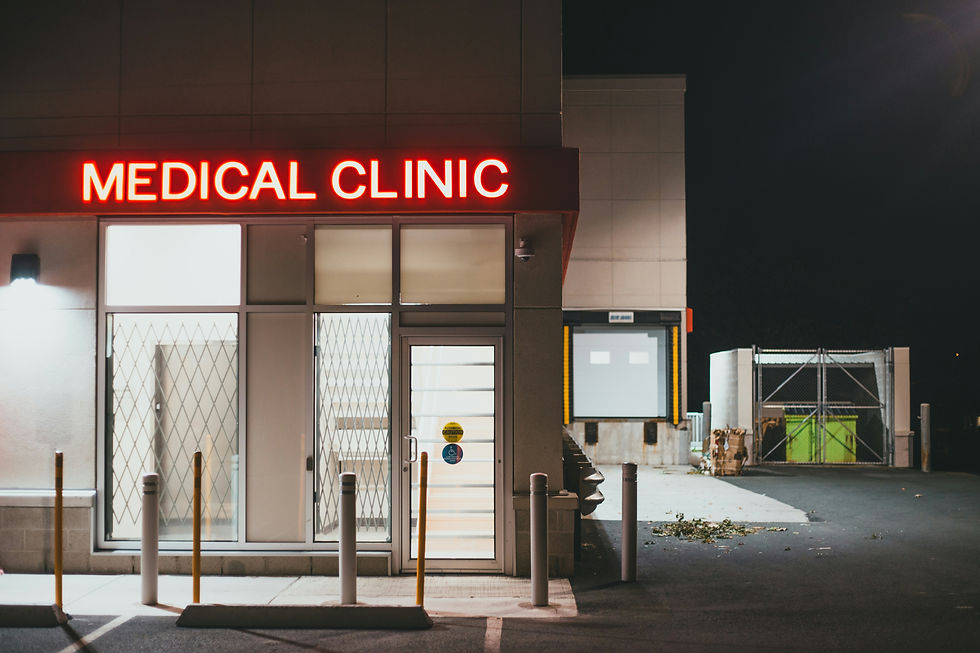Subrogation in Personal Injury Claims: What Injured Victims Need to Know
- aaron13642
- Aug 22, 2025
- 3 min read

When you are injured due to someone else’s negligence, multiple insurance companies may become involved in paying for your care. Your health insurance, disability insurer, or auto insurance company may cover medical bills and benefits while your claim is pending. Later, when you obtain compensation from the responsible party, the issue of subrogation arises—an important but often misunderstood aspect of personal injury law.
What is Subrogation in a Personal Injury Claim?
Subrogation is the legal right of a third party—typically an insurance company—to be reimbursed for money it has already paid on your behalf once you recover damages from the negligent party.
For example, if your health insurance pays $40,000 in accident-related medical bills, and you later receive a settlement or judgment from the at-fault driver, your insurer may claim repayment of those funds from your recovery. This prevents a double recovery while allowing insurers to recoup what they advanced.
Can My Health Insurance Take Part of My Settlement?
Yes, in many cases your health insurance company (or another insurer) has a contractual or statutory right to repayment. However, the exact amount they are entitled to recover can vary depending on the policy language, state law, and the specific circumstances of your case. An experienced trial lawyer can often negotiate reductions in the subrogation lien to maximize your net recovery.
How Do Insurance Companies Assert Subrogation Rights?
Insurers typically send subrogation letters or detailed ledgers showing payments made on your behalf. These documents are then used to establish the amount of the insurer’s claim. While essential, these documents often become the subject of legal disputes once the case moves into litigation.
Are Subrogation Letters Hearsay?
Defense attorneys often object to subrogation claim documents as hearsay—out-of-court statements offered to prove the truth of what they assert. For example, a letter from your health insurance company listing medical payments may be excluded unless your lawyer can lay the proper evidentiary foundation.
If these objections are not handled correctly, the insurer’s records may never be admitted into evidence, potentially jeopardizing your claim.
How Do Lawyers Overcome Hearsay Objections in Subrogation Cases?
Experienced trial lawyers use several legal tools to ensure subrogation documents are admissible:
Requests for Admissions – Asking the defendant to admit the authenticity of the insurer’s records during discovery.
Business Records Exception – Showing the documents are regularly kept in the course of business, making them admissible under the rules of evidence.
Depositions – Taking sworn testimony from an insurance company representative to authenticate and explain the records.
Each of these strategies requires skillful use of the rules of evidence and a strong command of litigation tactics.
How Does Subrogation Affect My Personal Injury Recovery?
Subrogation can significantly reduce the amount you take home from a settlement or judgment. However, with experienced representation, your attorney can challenge improper claims, negotiate reductions, and ensure that evidentiary hurdles are overcome in court.
Why You Need an Experienced Trial Lawyer for Subrogation Issues
Subrogation is one of the most complex areas of personal injury litigation. It requires not just negotiation with insurers but also courtroom experience to handle evidentiary objections effectively.
At Maples & Connick, our trial lawyers have the expertise to protect your recovery, challenge excessive subrogation claims, and ensure that key evidence is admitted in court. If you or a loved one has been injured by another’s negligence, contact us today for a consultation and put proven trial lawyers on your side.
.jpg)


